Here, in Part 2 of his personal account of the recent Sarawak state elections, Ong Kian Ming describes the whole gamut of running the DAP’s campaign, from the drama behind the hiring and training of polling and counting agents (only to have them go missing on polling day), protesting EC officers’ refusal to issue Borang 14s, coming up with ideas for billboards and advertisements to finally giving a moving answer to why we go through the hardship of winning an election.
(The first part of this article may be read here)
The third salient point I want to highlight is with regard to the challenge of finding, training and sending out PACAs. Not much attention is usually paid to the polling and counting process because of the belief that electoral fraud does not involve the polling and counting process or even if there was fraud e.g. vote-buying, having polling and counting agents in each of the polling streams will not be effective in preventing or reducing this aspect of electoral fraud. In Sarawak, I was to find out that one could not take the polling and counting process for granted, especially in the out-of-town Iban majority areas.
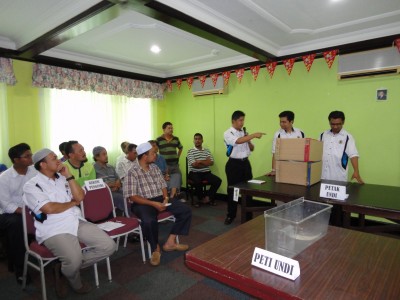
The campaign I was involved in had already ‘hired’ some of the local voters in the Iban majority areas to act as their PACAs. But I was told that most, if not all, of these PACAs had received no training. As such, it was highly doubtful that they would know how to object to cases of suspicious voters or how to argue for certain spoilt votes to be included and others to be excluded. Furthermore, I was also told that these PACAs were highly unreliable because after having been paid, it was a crapshoot as to whether they would actually show up on polling day itself to do their PACA duties. Hence, we felt that it was necessary to fly in volunteers from Peninsular Malaysia who did not need to vote or do other duties on polling day to carry out the PACA duties in the Iban majority polling stations in the state seats of Dudong and Bawang Assan, most of which were located about 30 minutes to an hour outside Sibu town itself.
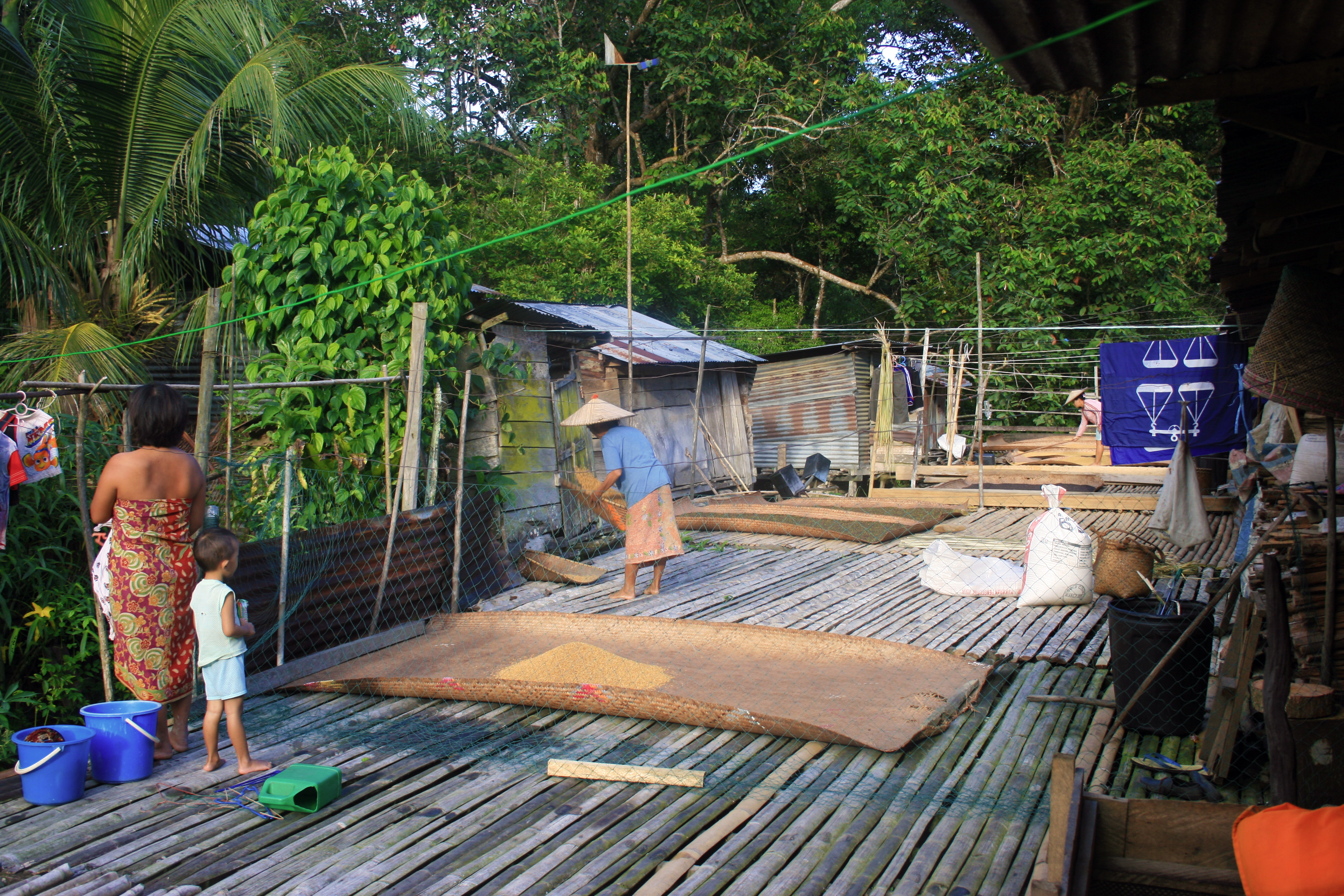
After a mad scramble, we managed to recruit 50 volunteers to be PACAs in the roughly 30 Iban majority polling stations in the two seats mentioned above. We also scrambled to arrange for PACA training for all those who had not been PACAs before. The couple of days before polling day also involved frantic rushing in terms of arranging appointment letters for all of these PACAs as well as sorting out who to send to what polling station and what polling stream.
On polling day itself, we had to hire over 20 taxis which were lined up in a convoy to send out these PACAS to their polling stations before 7 a.m. Thank heavens, all of them arrived safely and on time. Almost all of them found that their Iban PACA counterparts were not at the polling stations when they opened for voting to begin.
Most of our PACAs were very enthusiastic and went over and above their call of duty in monitoring the polling stations. For stations where we had more than one PACA, the other PACA would report back to us if there were any suspicious activities happening outside the polling venue. Other PACAs would text us questions with regard to the polling process and to see if there were grounds to protest certain actions taken by the EC official in charge of the polling station (or the Ketua Tempat Mengundi or ‘ KTM’).
At the close of polling and after the counting process, our PACAs faithfully texted the results back to us. We were satisfied that their presence had made a difference. Their presence surprised many of the EC officers in charge as well as the PACAs of the other party since they were expecting either local Iban PACAs or none at all. While I believe that most EC officers would not have allowed ballot-stuffing to occur, there could always be exceptions and in the areas without any of our PACAs, I am sure that the incidence of double-voting and voting using other voters’ ICs would have been higher.
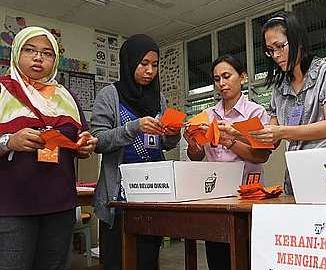
One last point to note on the polling and counting process.
We had instructed all of our PACAs to make sure that they obtain copies of the Form 14 or Borang 14, which gives the official result of that specific polling stream. We even prepared backup Borang 14s for them in the event that the EC officer did not want to give them a copy. Sadly, there were many polling streams where the EC officer in charge refused to give our PACA a copy of the Borang 14. Without the Borang 14, our PACA had no official document to indicate what the final result was at his or her polling stream. Without this official ‘receipt’, if you will, it is possible for the EC officer in charge to change the official results using another Borang 14 without any possible resource on our side!
Many of our PACAs protested and many of them were given the Borang 14s in the end but there were also a few PACAs who were not forceful enough and returned without these forms. From a policy standpoint, does it not make sense for the EC officer to give an official results form to the counting agents at the polling stream he or she is in charge of? The fact that this was not communicated to each and every EC officer in charge seems to me to be an abdication of duties of the EC as a whole.
Why then have counting agents when you do not acknowledge his or her presence of handing out an official ‘receipt’ when the counting process is completed? This really boggles my somewhat simple mind.
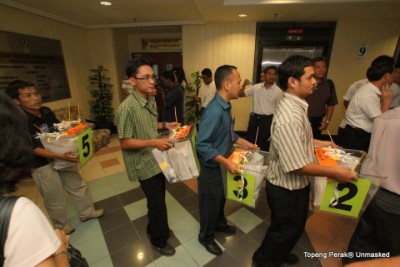
The fourth salient point I want to address is that after 10 days of campaigning, the electoral process is a very tiring and demanding process. Campaigning, from organizing the ceramahs, to doing the walkabouts especially in areas which do not welcome you, to organizing the volunteers including finding accommodation and transportation for them and feeding them, to raising funds for the campaign, to organizing the PACAs, to being vigilant about postal votes, to endlessly checking the location of the polling stations for random voters, to coming up with campaign advertisements and billboards, is a major ‘production’ effort.
During parts of the campaign, I almost wished that we could have a benevolent dictator in power and do away with the need for elections. That is, until I consider the far greater negative consequences of not having elections, including having a government that is not accountable to voters and which is far more likely to abuse its powers than to reward its citizens with good and competent governance.
Those who have gone through the first-hand experience of an electoral process, I feel, are far more likely to understand and appreciate the importance of having a free and fair elections compared to those who sit at the sidelines and watch.
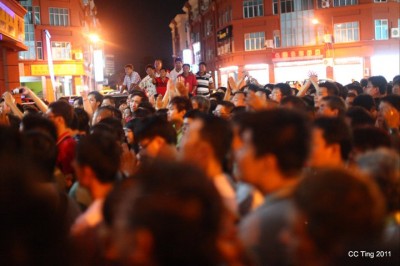
I want to end this piece by asking the following: What is the end-purpose of all this campaigning and electioneering? Is it purely for the sake of winning a contest to be an elected representative? Or is it purely to win enough contests to control the government either at the state or federal levels?
These goals, to me, are but a means to a larger and more significant end. The purpose of winning any election is so that one can be put in a position to influence governance in a way that will bring about positive, substantive and lasting benefits to the voters. In the case of Sibu and for Sarawak, this would include having a vision to channel the significant resources and wealth of the state in such a manner that would bring sustainable development, increase economic and education opportunities, and improve infrastructure for the enjoyment of a larger and larger share of voters.
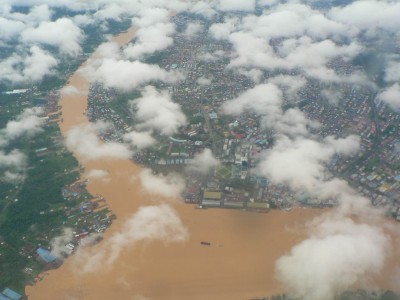
I had the opportunity to work with a bunch of kids in Sibu who had just finished their SPM or STPM. Most of them, for a variety of complex reasons, many of which have to do with the inability of the state and federal governments to bring in economic and educational opportunities to Sibu, have limited their own economic and opportunities based on what is available in Sibu and for some of the lucky few, in Kuching.
The wealth created from many years of logging activities in the interior of the Rejang can be seen in some of the big mansions which dot the city and in some of the key corporations, such as Rimbunan Hijau or RH, in the town center. But little of this wealth is seen in the physical infrastructure of the city and certainly not at the airport.
The state government, which has also shared in this wealth, and the municipal council both seem to have little imagination in terms of leveraging on the potential of this town. It is to this end to which the voters must push the powers that be, including those in the opposition – to show them how the electing of their representatives and by extension, the state government, can bring about positive and lasting changes to their lives and the lives of their children. This, to me, is the key component of the electoral process and this is what all of us who are involved in the electoral process should continuously strive for.
Ong Kian Ming is a political scientist by training. He currently operates in a context where the ‘science’ of politics is not very well understood whether by voters, politicians or even himself. He hopes that this puzzle will slowly clear itself up, at least in his own head, so that he can justify his 6 years of doing a PhD in political science at Duke University to his wife, his family and his few friends. He can be reached at [email protected]. He is immensely grateful for those of you who bothered to read this article all the way to the end.


Ayia stupid man will tell TAIB. TO WIN AN ELECTION > YOU ARE FOR THE PEOPLE AND THE COUNTRY NOT YOUR EGO/PRIDE AND POCKETS, LOUY, WITHOUT THE PEOPLE THERE IS NO CM-TAIB, PROBABLY IS A FISHERMAN PUNCIN IKAN KALI IN BARAM RIVER. WELL WRITTEN MR. ONG KIAN MING
A very well written article both part 1 and part 2. It gives a very clear account of the very demanding work BEHIND the scene of organizing election campaigns not to even consider the constrain of time and space.
I believe the importance to have trained PACA.I did put my name to be trained as PACA. Until now I am not even called up to go for training. I will fight for my right as a PACA.
Can you help me by registering me?